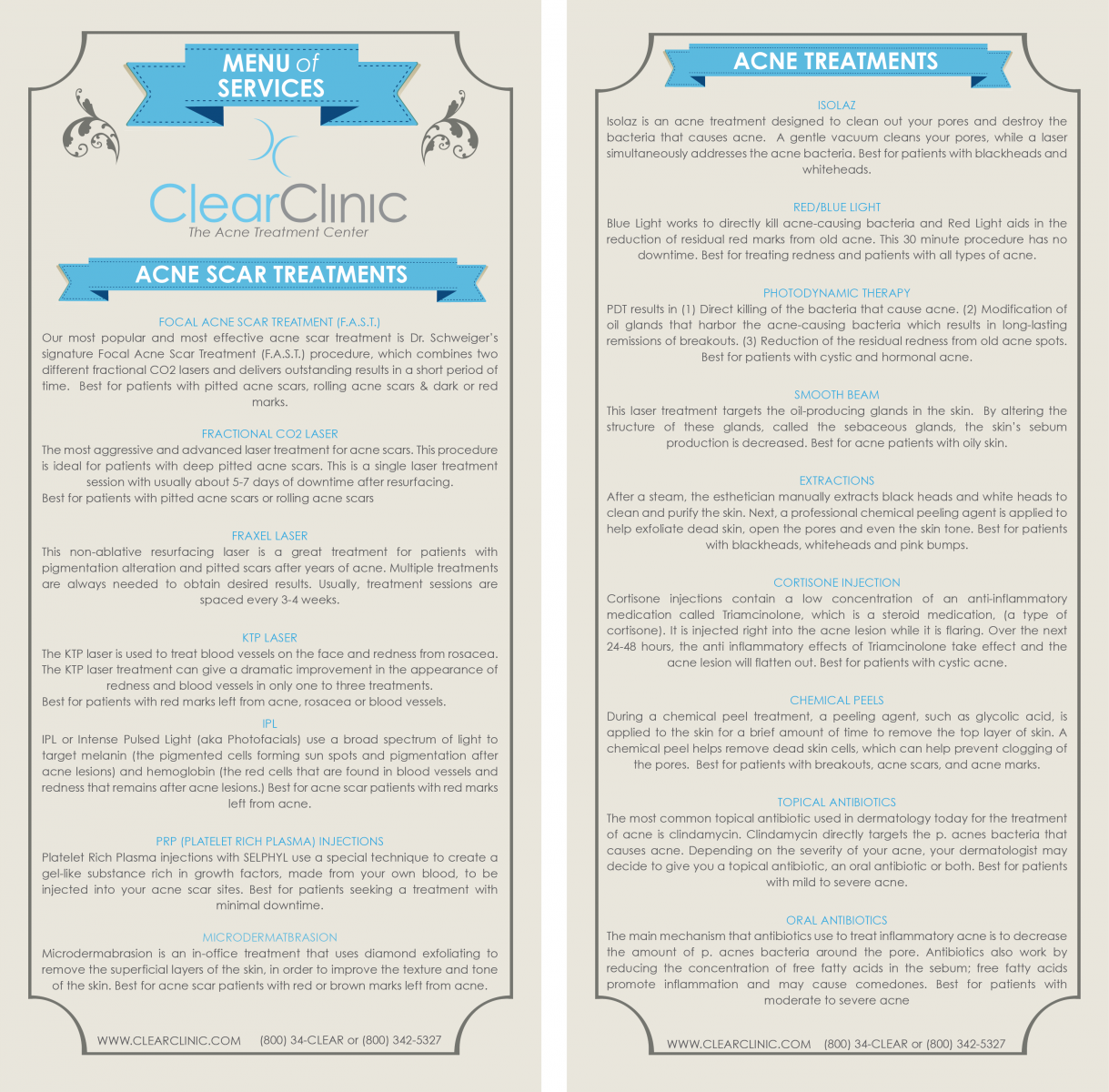What is Accutane?
Accutane is the brand name of a medication called Isotretinoin. Accutane is used to treat severe recalcitrant nodular acne that doesn’t respond to other treatments. Many patients try treatment with oral antibiotics, as well as in-office procedures such as Isolaz laser or Photodynamic Therapy, prior to starting Accutane.
How does Accutane work?
Accutane works by a few different mechanisms. It reduces oil production from the sebaceous glands, something that other acne medications are unable to do. Accutane also regulates the skin cells in the follicle, thus preventing the formation of the microcomedone. Inflammation of the skin is also reduced by taking Accutane.
What are the side effects from Accutane treatment?
The vast majority of patients do not experience any major side effects while taking Accutane. The most common side effect is excessive dryness of the skin and lips. Patients may find that their lips and skin are very dry; we recommend using emollients to the lips (such as aquahpor) and body regularly to address this issue. Other, much less common, side effects of Accutane include gastrointestinal issues and mood changes. These side effects are rare but can potentially be serious, and it is very important to contact your doctor immediately if you feel you are experiencing side effects from Accutane.
How long does Accutane take?
Accutane is usually taken for a course of approximately six months. It is a pill that is usually taken once or twice daily. Some patients notice improvement immediately, while some patients actually notice that their acne gets worse before getting better. Most patients see an improvement in their acne by the third or fourth month of treatment.
What is iPledge?
iPledge is Accutane’s enrollment system. The goal of iPledge is to ensure that every patient taking Accutane understands the risks and benefits of the medication. For women, iPledge enforces the zero pregnancy rule while taking Accutane. Since Accutane is teratogenic (may cause birth defects if you get pregnant while taking), iPledge mandates that all women of childbearing potential either practice abstinence or use two forms of contraception while taking Accutane. Each month, both the prescriber and the female patient must log into the iPledge website to answer a series of questions. Both male and female patients must have bloodwork done each month, in order to monitor any potential side effects of the medication. There are many things to keep in mind while taking Accutane (ie. no donating blood, limit direct sun exposure, and avoid certain other medications), so it is important that you are counseled by your dermatologist or certified physician assistant prior to beginning the medication.
Does acne ever return after taking Accutane?
For some patients, Accutane is a “cure,” meaning that they never have acne again. For some patients, they are clear for many years after taking Accutane, but they do flare at some point in the future. The good news is that after taking Accutane, most patients respond better to conventional acne medications and do not need to restart Accutane. Some patients do not experience clearance of their acne while taking Accutane, but this is the minority of patients. Most patients do very well after Accutane treatment.

